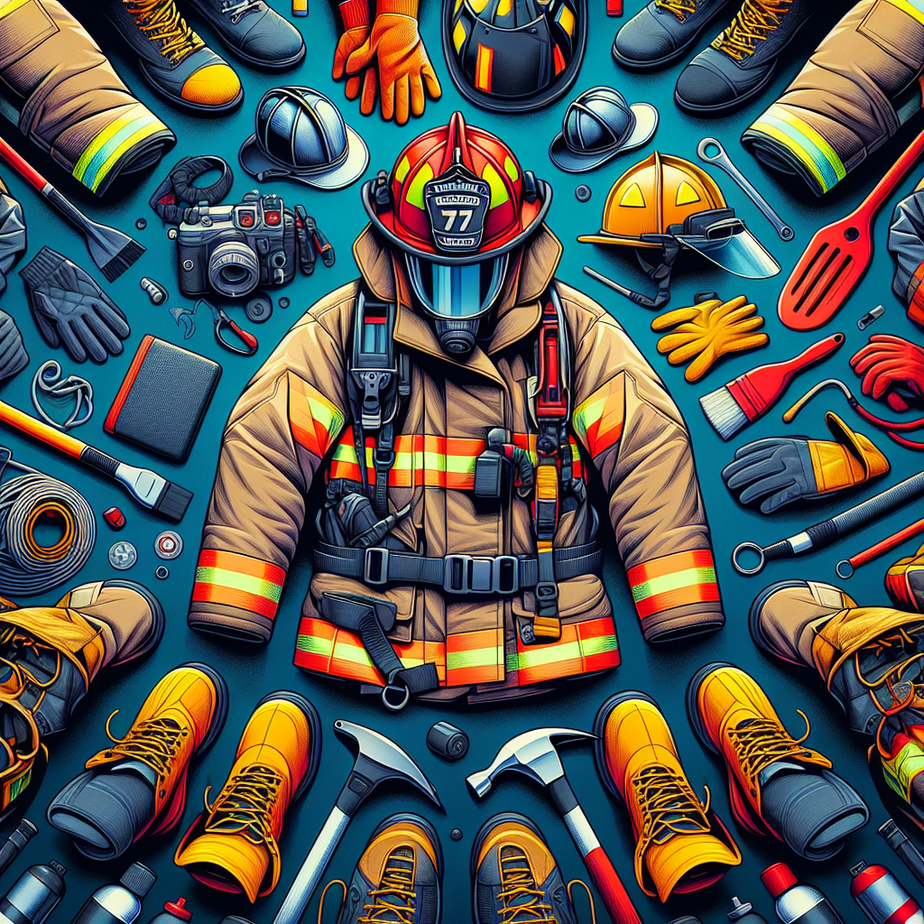🔥 Suit Up for Safety: Why Cleaning Your PPE is Non-Negotiable
Imagine this: you’re halfway up a eucalyptus-dotted hill, flames roaring like a football crowd behind you, and the air’s thick as a Sunday barbecue gone wrong. Suddenly, your trusty turnout jacket isn’t quite so trusty because last week’s soot and grime clogged its protective layers. Scary, right? That’s why cleaning your firefighting PPE (Personal Protective Equipment) is as vital as your morning coffee—or your secret Tim Tam stash.
Soot, ash, and unburned particles from Australian bushfires don’t just make your gear look rugged. They can break down fabrics, reduce your gear’s ability to keep the heat out, and even expose you to harmful toxins. Let’s not risk PPE—and personal—failure over something simple like maintenance. Hot tip? Clean Your Gear, Mate.
👕 Quick Tip: After every job, give your gear the once-over. Spot any grime, rinse it off with cold water, and wash it according to its care instructions.
🧯 Don’t Cook Your Gear: Drying it the Aussie Way
Drying your gear is where things can go pretty pear-shaped if done wrong. Ever been tempted to throw your gloves over an open fire to dry them faster? Don’t lie. But here’s the deal: intense heat can make firefighting PPE shrink, warp, or lose its fire-resistant magic.
Instead, take a cue from old-school Aussies and hang your gear under the veranda, letting the breezy arvo do its thing. It might take longer, but trust me, your gear will stay in top-notch condition, and you won’t cringe when you slip your gloves on and they suddenly fit a Barbie doll.
💡 Pro Tip: Avoid direct sunlight during drying. The UV rays can weaken the fabrics over time. Go for shade—your PPE will thank you.
🧼 Keep It Clean, But Not Too Clean
There’s clean enough to keep you safe, and then there’s stripping your gear so bare of oils that it loses its vital barrier. Overwashing your turnout gear might feel satisfying (smelling like lavender instead of last week’s wildfire smoke is tempting), but excessive scrubbing with the wrong products can erode the chemical treatments that make your gear fire-resistant.
Opt for detergents specifically designed for fire-retardant textiles. Think of it this way: your PPE deserves the same VIP treatment as a bush ballad singer’s Akubra hat.
🧺 Laundry Hack: Wash PPE separately from other clothes, especially footy jerseys. You don’t want hazardous chemicals hitching a ride to your weekend match.
🛠️ Repair Is Care: Nip Damage in the Bud
The tiniest tear or loose seam in your PPE could spell disaster on the fireground. Embers love sneaky entry points. Treat your gear like you’d treat your Aussie ute—maintenance is your best mate.
Got a burn hole, ripped strap, or worn knee patch? Don’t MacGyver it with duct tape and hope for the best. Take your equipment to a certified repair service. It’s worth it. If the gear is damaged beyond salvation, it’s time to talk to your captain about getting a replacement. Safety isn’t something to skimp on.
🔧 Pro Tip: Always inspect your gear after a shift. Turn it inside out to look for sneaky tears and abrasions.
🥾 Boots Deserve Better
If you’ve ever tramped through scorched bushland during a summer bushfire, you know your boots are your lifeline. Steel toes, slip-resistant soles, and fireproof leather? They’re as essential to a firefighter as Vegemite is to toast.
That said, they won’t do their job effectively if they’re caked in charcoal or left wet in a forgotten corner of the firehouse. Clean boots after every shift, dry them thoroughly (not with a blowtorch, trust me), and condition the leather now and then to keep it supple. Treated well, your boots won’t just protect your feet—they’ll last longer than your mates’ dodgy camping chairs.
👟 Pro Tip: Store your boots upright to prevent them from losing shape. And please, don’t shove them under your bunk—give them some breathing room!
Final Thoughts: PPE is Your Lifeline
There you have it—your ultimate guide to keeping your firefighting PPE safe, functional, and not smelling like an old campfire. Remember, your gear isn’t just equipment; it’s a lifeline. Treat it well, and it’ll have your back during those 40-degree days when the bushfire siren wails.
So, next time you’re tempted to shortcut a cleanup or skip an inspection, think of the risks. One dodgy zipper or overlooked tear can make the difference between a standard shift and a very bad day. Your PPE protects you. Protect it back.



